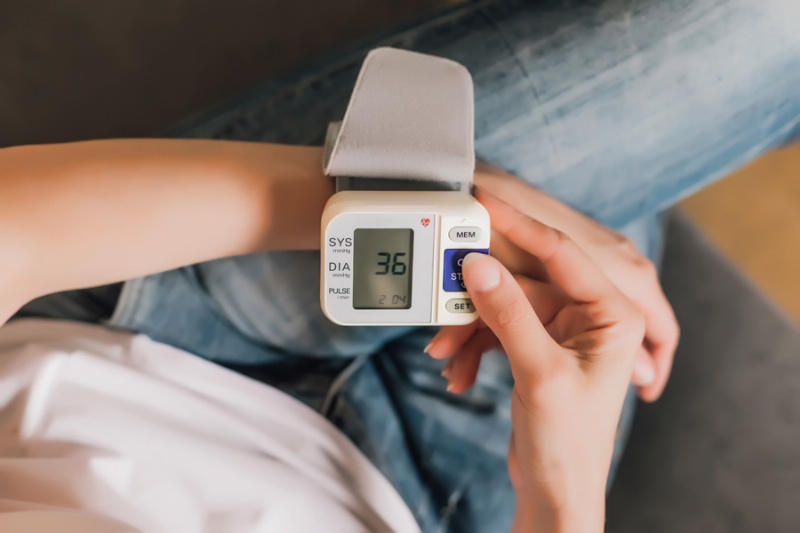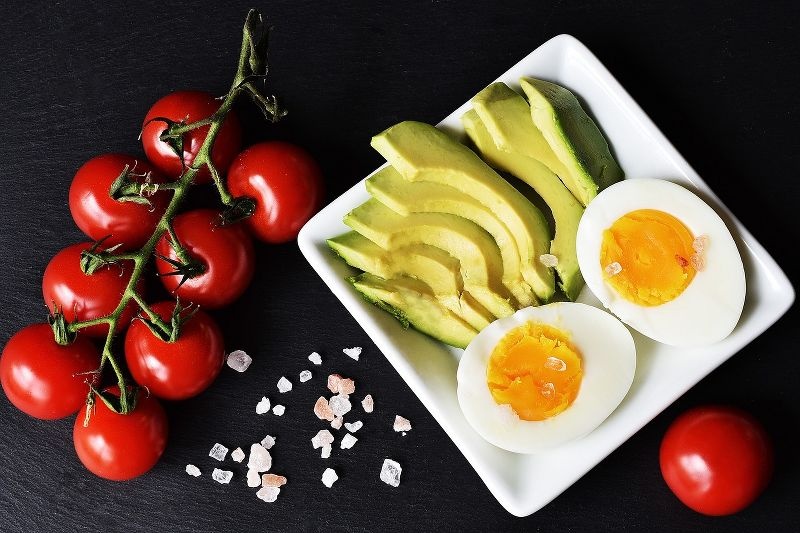
Visits: 82

Hypertension, also known as high blood pressure, is a condition in which blood pressure is elevated and persists at higher than normal levels. It is a chronic health condition that can be caused by a number of factors, including an unhealthy lifestyle, heredity, obesity, age, certain medications and other medical conditions.
Although high blood pressure is a common condition, it can have serious health consequences if not treated properly. With the proper treatment and management, however, high blood pressure can be controlled and the risk of life-threatening complications reduced.
In this article we will look at the causes of high blood pressure, symptoms, risk factors, treatment and prevention of this condition.
The symptoms of hypertension
Usually, high blood pressure causes no symptoms. As a result, many individuals don’t know they have hypertension until they are checked by a doctor. However, some people may experience symptoms such as headaches, dizziness, sweating, fatigue, concentration problems and memory problems.
The causes of hypertension
The causes of high blood pressure can vary from individual to individual. Most people develop hypertension due to a combination of risk factors, such as obesity, lack of exercise, poor diet, smoking, alcohol abuse, stress, heredity, and certain medications. High blood pressure can also be a result of certain medical disorders, such as diabetes, kidney failure, liver disease and heart disease.
Risk factors for hypertension
High blood pressure can be caused by several factors, some of which are modifiable and some of which are not. Here are some of the main risk factors for high blood pressure:
Obesity
Obesity is a major risk factor for hypertension. Excess fat can build up around vital organs, such as the heart and kidneys, and increase pressure within the arteries.
Excessive consumption of salt
Salt is an important component of the diet, but excessive salt consumption can raise blood pressure. It is advisable to limit the consumption of foods with a high salt content and to choose healthier alternatives, such as spices and herbs.
Heredity and stressful lifestyle
High blood pressure can be hereditary, which means that some people are more predisposed to developing this condition because of their genes. Also, stress and hectic pace of life can contribute to high blood pressure.
Complications of hypertension
High blood pressure can have serious health consequences, including the risk of heart attacks, strokes, heart failure, kidney failure, peripheral arterial disease, dementia and other complications. To prevent these life-threatening complications, it’s important to control your high blood pressure with the help of a doctor.
Heart failure
High blood pressure can weaken the heart muscle and make it harder for the heart to pump blood effectively. This can lead to heart failure, a condition in which the heart is unable to supply enough blood and oxygen to the body.
Stroke
High blood pressure can damage blood vessels and increase the risk of stroke, which is a serious condition in which blood flow to the brain is cut off. A stroke can cause permanent damage to the brain and can even be fatal.
Kidney damage
High blood pressure can damage the kidneys, which are important for filtering the blood and maintaining proper electrolyte balance. Kidney damage can lead to kidney failure, which can be life-threatening if left untreated.
Treatment of hypertension
Treatment of high blood pressure can vary depending on the severity and underlying causes. Your doctor may prescribe medications to lower your blood pressure and/or advise you to make lifestyle changes. Lifestyle modifications may include eating a healthy diet, exercising regularly, not smoking, reducing your alcohol intake, and reducing stress.
Using medications
Your doctor may prescribe medications to help control blood pressure such as sartans or beta-blockers. There are different types of medications available for high blood pressure, and your doctor will choose the most appropriate one for you based on your symptoms and risk factors.
Adopting a healthy lifestyle and natural supplements
Although medications are usually the main option, there are also some natural remedies that can help reduce high blood pressure.
Some of these include:
- A healthy and balanced diet: A healthy and balanced diet is essential to keep blood pressure in check. It is recommended to consume foods rich in potassium such as fruits, vegetables, whole grains and dairy products. Also, it’s important to limit your intake of salt, sugar, saturated fat, and alcohol.
- Exercise: Exercise is a great way to reduce blood pressure. It is recommended that you get at least 30 minutes of moderate exercise every day to maintain a healthy blood pressure.
- Reduce stress: Stress can raise blood pressure, so it’s important to learn how to manage it. Relaxation techniques such as meditation, yoga, deep breathing and exercise are recommended.
- Limit alcohol and smoking: Alcohol and smoking can raise blood pressure. Limiting your alcohol intake and quitting smoking are recommended to maintain a healthy blood pressure.
- Supplements: Some supplements may be useful for lowering blood pressure. These include fish oil, melatonin, vitamin C, coconut oil and turmeric.
It is important to note that these natural remedies may be helpful, but they are not a substitute for medications.
Is there anything we can do to prevent hypertension? The answer is yes: physical activity is an important prevention strategy.
Benefits of exercise
Regular exercise can help prevent and treat high blood pressure. Exercise helps lower blood pressure naturally. It can also help reduce weight, lower cholesterol levels and increase insulin resistance. When you exercise regularly, your arteries can relax, which can help lower your blood pressure. Additionally, exercise can help reduce stress, which can also help reduce blood pressure.
There are several types of exercise that can help prevent and treat high blood pressure. Aerobic exercises, such as running, walking, cycling, swimming, and dancing are all effective ways to lower blood pressure. Resistance exercises, such as strength and weight training, can also help reduce blood pressure. Exercise is most effective when done regularly. The amount and frequency of exercise depends on your fitness level and goals.
Experts recommend exercising regularly for at least 3 hours a week. However, the amount of exercise needed can vary from person to person.
The risks of untreated hypertension
Untreated high blood pressure can increase the risk of life-threatening medical complications, such as heart attacks, strokes, heart failure, kidney failure, peripheral arterial disease, dementia, and other complications. It is therefore crucial for people with high blood pressure to see a doctor and follow the instructions for treatment and management.
Originally posted 2023-03-12 18:53:21.


